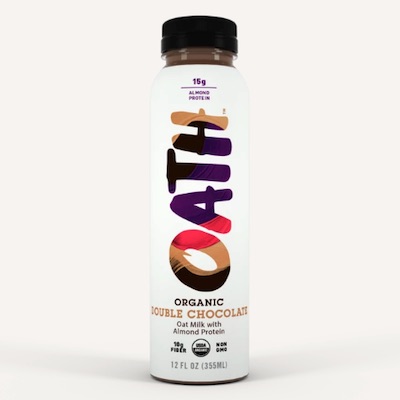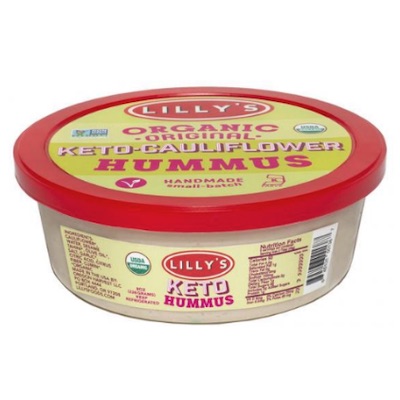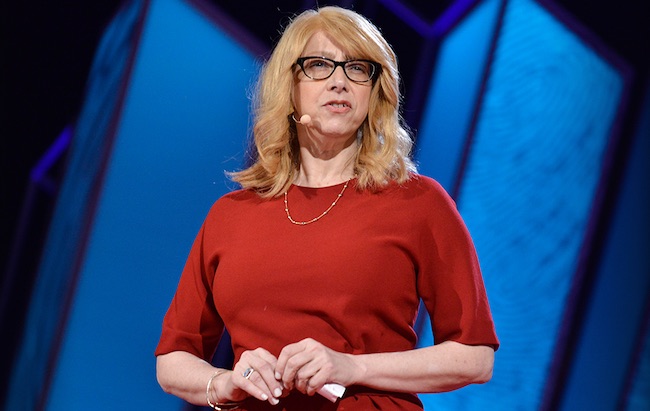
“Right to Know” Movement Extends Beyond GMOs, Victory Achieved in the Labeling of Menstrual Product Ingredients
(New York Assemblymember Linda B. Rosenthal, who sponsored the Menstrual Products Right to Know Act. Photo via TEDMED.)
While the majority of us in the food world have moved on from the “Right to Know” movement — with the USDA having pushed through an incredibly flawed Bioengineered Food Disclosure Standard — the fight has been in full force in a different sector of the organic industry: menstrual products.
In the U.S., the potentially toxic chemicals that are used in tampons and pads do not have to be disclosed on the packaging.
As a result, many women are completely in the dark in regards to what they are putting into their bodies. This is particularly disconcerting given that, on average, a woman uses approximately 11,000 tampons in a lifetime.
NYC-based LOLA, an organic menstrual products company, has been working to educate consumers about this issue for years.
In one particularly effective and compelling video, it burned one of its own organic tampons side-by-side with a conventional one. The conventional one — filled with chemicals — did not burn evenly but melted instead.
“Young girls will go on to use tampons and menstrual hygiene products for 24 hours each day, five days a week, one week a month, every month for as many as 40 years. Women and young girls have an indisputable and absolute right to know what we are putting in and on our bodies,” said New York Assemblymember Linda B. Rosenthal, a politician who was also very active in the GMO-labeling movement.
Seeking to change this situation, she sponsored the Menstrual Products Right to Know Act, which passed the state’s Assembly Committee on Consumer Affairs and Protection in June of 2018.
More than a year later, last Friday, New York Governor Andrew Cuomo made it official when he signed this piece of legislation into law. It goes into effect in 180 days, and manufacturers will then have 18 months to develop new packaging that discloses all of the ingredients in their products.
Even though this is a New York state law and not a federal one, it is widely expected that menstrual product companies will not have one set of packaging for New York and a different set of packaging for the rest of the country. As a result, this law will very likely impact consumers throughout the U.S.
“We hope this law is just the beginning – so that women in New York and beyond have access to fully transparent, candid information that enables them to make deliberate and empowered decisions about their reproductive health and wellness,” said Jordana Kier, co-founder/co-CEO of LOLA.
It goes without saying that this is a huge victory for both women and everyone in the “right to know” movement, and the chemical industry has been put on notice once again.
And it is further confirmation that we can create positive change in how companies are regulated in our country — at a time when it seems more challenging than ever.
But the formula for success remains the same: people getting involved and actively engaging our elected officials to pass laws that prioritize the interests of consumers.
 |
With gratitude, 
Max Goldberg, Founder |
Quick Hits
* An investigation by the Organic & Natural Health Association has found that Amazon’s No. 1 hemp bestseller contains CBD — even though the site has a No CBD Sale policy.
* Congrats to Tradin Organic who has been selected as a finalist for the Organic Champion Award at the 2019 Fi Innovation Awards for its organic avocado oil from Ethiopia.
* The farm owned and managed by the Spartanburg County School District 6 in South Carolina has received USDA organic certification. Very cool!
* Rachel Drori, Founder and CEO of Daily Harvest, wrote a great op-ed called Today’s Food is Digging Our Grave.
* A new organic poke bowl concept opened in Tampa.
* A food truck — for dogs — that serves organic fare.
* The largest organic farm in Manhattan is on a rooftop.
* Whole Foods has introduced a robotic coffee system.
* This American in Japan is making organic bread.
* Prince Charles said that he has had to ignore the “endless criticism and carping and shouting and screaming” of those who have not trusted his methods of organic farming.
New Organic Products
Navy Strength Gin by Prairie Organic Spirits
With gin continuing to show record growth across the globe, Prairie Organic Spirits has introduced Organic Navy Strength Gin -- the brand’s first small batch collection release and the first U.S. organic navy strength gin. With a 57% alcohol by volume (ABV), the 114-proof bold gin has citrus notes of lemon zest, floral notes of angelica root and proprietary spices with a peppery finish.Oat Milk Protein Beverages by OATH
A new brand, OATH, has launched into the marketplace with its hero product -- Organic Oat Milk with Plant Protein. It comes in four flavors -- double chocolate, matcha chai, Indian rose and golden turmeric -- and the drinks contain 15-16 grams of protein.Keto-Cauliflower Hummus by Lilly's Foods
Lilly’s Foods has come out with a first-of-its-kind Organic Keto-Cauliflower Hummus line in original, golden milk, buffalo and ranch dill flavors. It was created to provide a keto-friendly, low-carb option for consumers seeking to meet their lifestyle goals while still enjoying the savory flavor of hummus. Vegan, gluten-free, Non-GMO Project Verified and kosher-certified.Weekly News Summaries
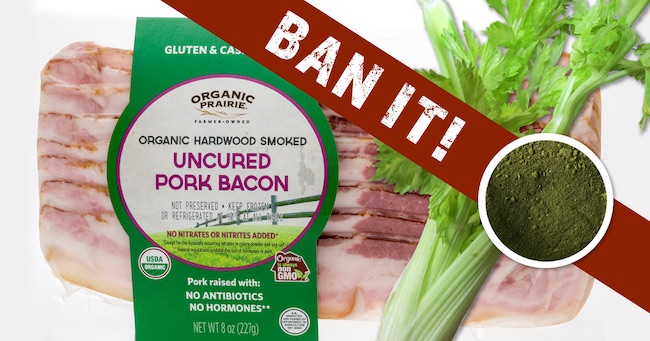

IMPORTANT: Why Watchdog Groups Want Celery Powder Banned in Organic, Sign Petitions
Organic Consumers Association and OrganicEye are calling for the National Organic Standards Board to ban celery powder in organic because of its carcinogenic effects in meat. OCA's petition is here and OrganicEye's petition is here.

The End of Big Food
By Helena Bottemiller Evich
As the Grocery Manufacturers Association rebrands itself to the Consumer Brands Association, this once powerful food trade association -- and its members -- will never be the same.

UN Report: 14% of Food is Lost Between Harvest and Retail
By Chris Albrecht
Just another reason why the "GMOs are needed to feed the world" narrative is a complete falsehood.

Conventional Candy Companies Face Sustainability and Child Labor Issues
By Mike Pomranz
In Green America's chocolate scorecard, all organic brands received "A" scores while major candy corporations were called out for their very questionable practices.
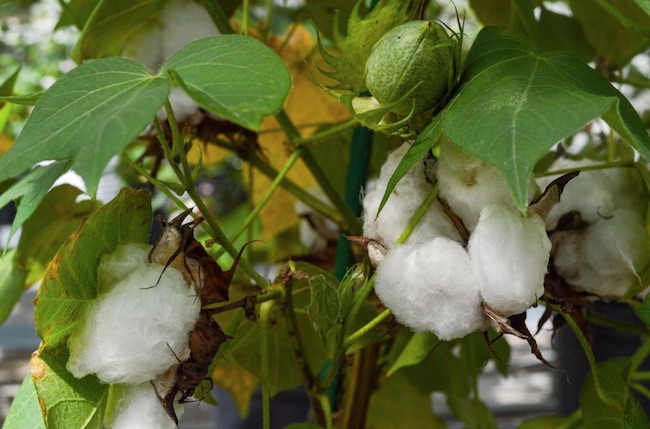
Regulators Allow GMO Cotton as a Human Food Source
By Will Dunham
The GMO cotton plant developed by Texas A&M University scientists uses the very, very worrisome RNAi silencing technology.
California Ends Sale of Toxic Pesticide Chlorpyrifos
Joining Hawaii and New York, California will phase out the pesticide by February 2020, a critical step in protecting public health.

U.S. Consumers: Environmental Impact Matters When Making Food and Beverage Purchases
By Mary Ellen Shoup
According to NPD Group, an increasing proportion of U.S. consumers (between 18- and 44-years-old) claim to be factoring in the environmental impact before purchasing a food or beverage product.
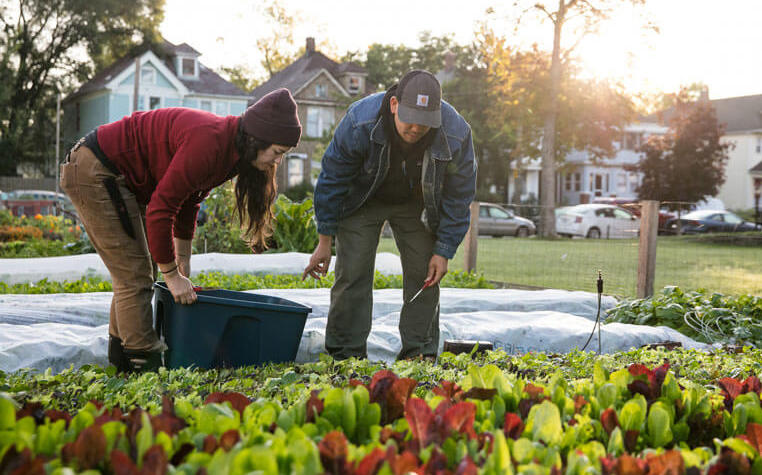

Steward, The World's First Crowdfarming Platform, Is Now Open To Individual Investors
For the first time ever, Steward enables individuals and conscious consumers to invest directly in sustainable farms.

New Regulations to be Introduced in the U.S. and EU on Organic Goods
By Anthony Meyers
Beginning in December, U.S. law states that ‘non-synthetic flavors’ may be used when organic flavors are not commercially available, while new rules in the EU regarding organic produce come into effect in January.

Brexit Helpline Launched for Organic Farmers
The Soil Association has launched a Brexit readiness support service to help organic businesses prepare for a possible no-deal scenario on October 31, something that would halt organic exports to the EU.
The material in this newsletter is copyrighted and may be reprinted by permission only. All requests must be in writing. Please use our contact form to request republication rights.
Newsletter Archive
Quick Hits
* An investigation by the Organic & Natural Health Association has found that Amazon’s No. 1 hemp bestseller contains CBD — even though the site has a No CBD Sale policy.
* Congrats to Tradin Organic who has been selected as a finalist for the Organic Champion Award at the 2019 Fi Innovation Awards for its organic avocado oil from Ethiopia.
* The farm owned and managed by the Spartanburg County School District 6 in South Carolina has received USDA organic certification. Very cool!
* Rachel Drori, Founder and CEO of Daily Harvest, wrote a great op-ed called Today’s Food is Digging Our Grave.
* A new organic poke bowl concept opened in Tampa.
* A food truck — for dogs — that serves organic fare.
* The largest organic farm in Manhattan is on a rooftop.
* Whole Foods has introduced a robotic coffee system.
* This American in Japan is making organic bread.
* Prince Charles said that he has had to ignore the “endless criticism and carping and shouting and screaming” of those who have not trusted his methods of organic farming.

